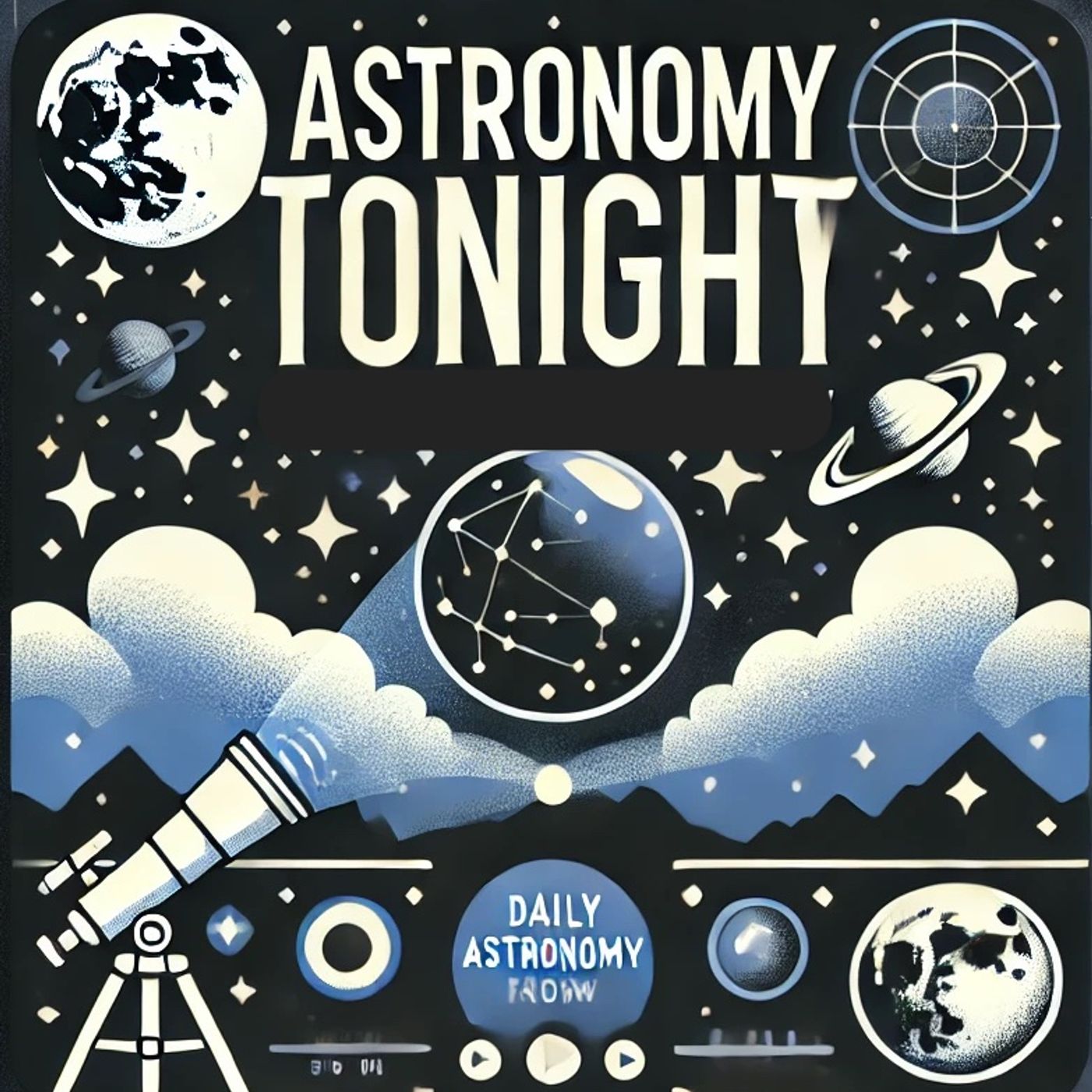Episode Details
Back to Episodes
"The Night Hubble Saw Beyond: A Galaxy's Hidden Cluster"
Published 4 months, 3 weeks ago
Description
This is your Astronomy Tonight podcast.
On October 5th, 1923, the astronomical world was rocked by the discovery of the first known globular cluster outside our Milky Way galaxy. Edwin Hubble, the renowned astronomer who would later lend his name to the famous space telescope, made this groundbreaking observation using the 100-inch Hooker telescope at Mount Wilson Observatory in California.
Hubble was studying what was then known as the Andromeda Nebula, which we now know as the Andromeda Galaxy. While examining photographic plates of the object, he noticed a fuzzy patch that didn't quite fit with the rest of the galaxy's structure. Upon closer inspection, Hubble realized he was looking at a globular cluster - a dense, spherical collection of hundreds of thousands, or even millions, of ancient stars.
This discovery was monumental for several reasons. First, it provided strong evidence that Andromeda was indeed a separate galaxy, far beyond the confines of our own Milky Way. Until then, many astronomers believed that the entire universe consisted only of our galaxy. Hubble's finding helped to expand our understanding of the cosmos dramatically.
Secondly, the presence of globular clusters in Andromeda suggested that other galaxies might have similar structures to our own, hinting at a universal process of galaxy formation and evolution. This opened up entirely new avenues of research in extragalactic astronomy.
Imagine Hubble's excitement as he peered through the eyepiece that night, realizing he was seeing something no human had ever observed before. It's moments like these that remind us of the thrill of astronomical discovery and the endless wonders waiting to be unveiled in our vast universe.
Don't forget to subscribe to the Astronomy Tonight podcast for more fascinating stories from the cosmos. If you want more information on this and other topics, check out QuietPlease.AI. Thank you for listening to another Quiet Please Production.
This content was created in partnership and with the help of Artificial Intelligence AI
On October 5th, 1923, the astronomical world was rocked by the discovery of the first known globular cluster outside our Milky Way galaxy. Edwin Hubble, the renowned astronomer who would later lend his name to the famous space telescope, made this groundbreaking observation using the 100-inch Hooker telescope at Mount Wilson Observatory in California.
Hubble was studying what was then known as the Andromeda Nebula, which we now know as the Andromeda Galaxy. While examining photographic plates of the object, he noticed a fuzzy patch that didn't quite fit with the rest of the galaxy's structure. Upon closer inspection, Hubble realized he was looking at a globular cluster - a dense, spherical collection of hundreds of thousands, or even millions, of ancient stars.
This discovery was monumental for several reasons. First, it provided strong evidence that Andromeda was indeed a separate galaxy, far beyond the confines of our own Milky Way. Until then, many astronomers believed that the entire universe consisted only of our galaxy. Hubble's finding helped to expand our understanding of the cosmos dramatically.
Secondly, the presence of globular clusters in Andromeda suggested that other galaxies might have similar structures to our own, hinting at a universal process of galaxy formation and evolution. This opened up entirely new avenues of research in extragalactic astronomy.
Imagine Hubble's excitement as he peered through the eyepiece that night, realizing he was seeing something no human had ever observed before. It's moments like these that remind us of the thrill of astronomical discovery and the endless wonders waiting to be unveiled in our vast universe.
Don't forget to subscribe to the Astronomy Tonight podcast for more fascinating stories from the cosmos. If you want more information on this and other topics, check out QuietPlease.AI. Thank you for listening to another Quiet Please Production.
This content was created in partnership and with the help of Artificial Intelligence AI